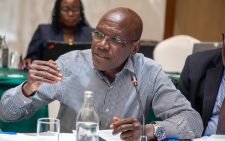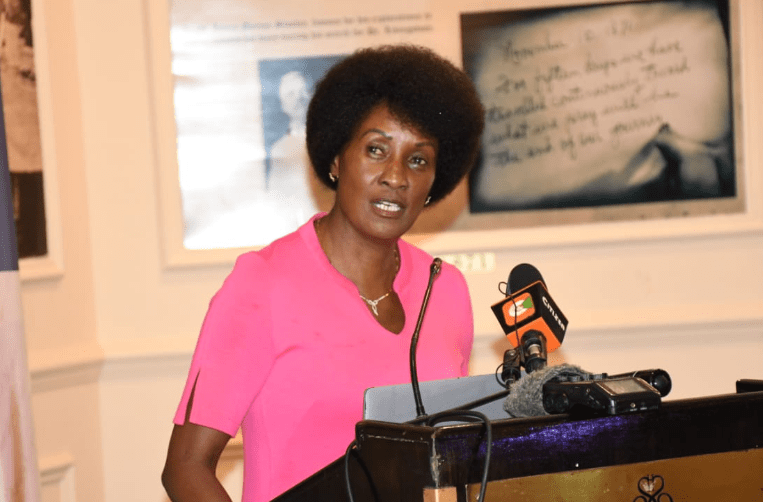Why next polls are poised to be unlike previous ones

Kenya’s political landscape is once again shifting, setting the stage for a dramatic showdown in the 2027 elections. The echoes of the 2022 contest still linger, but new forces are at play, reshaping alliances, testing ambitions, and leaving the fate of the nation hanging in the balance.
Political betrayals and realignments have always been part of the country’s electoral process, yet the coming battle is poised to be unlike any before. With growing public discontent, rising economic hardships, and unexpected power struggles, the next election could redefine the nation’s leadership in ways few had foreseen.
William Ruto’s victory in 2022 was narrow but decisive. He secured 7.18 million votes, amounting to 50.49 percent of the total, just edging out Raila Odinga’s 6.94 million votes, which stood at 48.85 percent. The familiar voting patterns of past elections held firm – Ruto dominated the Rift Valley and Mt Kenya, while Odinga maintained his grip on Nyanza and the coastal regions.
However, the years since the election have not been kind to the administration, as economic challenges have tested the patience of the electorate. Rising living costs, increased taxation, and the slow pace of promised reforms have eroded the confidence that many voters placed in the President. More importantly, Mt Kenya, a region that played a pivotal role in Ruto’s victory, has grown increasingly restless.
A major catalyst in this political upheaval has been the downfall of the impeached Deputy President Rigathi Gachagua. Once a staunch ally and Ruto’s running mate in 2022, Gachagua’s fortunes took a dramatic turn when he was impeached on October 17, 2024 on charges of gross constitutional violations and incitement.
While he argued that the allegations were politically motivated, the courts upheld the decision, and Kithure Kindiki was sworn in as the new Deputy President. Given that Kenyan law bars impeached officials from contesting public office, many assumed that Gachagua’s political career had come to an end. However, his reinvention as a vocal critic of the administration has positioned him as a formidable kingmaker in Mt Kenya politics.
Freed from the constraints of defending the government, Gachagua has capitalised on growing discontent in Mt Kenya, rallying voters who feel sidelined by the administration they helped instal. With over 4.5 million registered voters, the region has become increasingly fractured. Although Gachagua is ineligible to run, his political manoeuvring could significantly alter the 2027 race. If he throws his weight behind a candidate who resonates with the frustrations of the Mt Kenya electorate, the implications could be far-reaching.
One of the most likely beneficiaries of Gachagua’s support is Kalonzo Musyoka. The Wiper Party leader, a veteran of Kenya’s political scene, commands a loyal following in Ukambani, where he delivered a significant portion of the 2.2 million Kamba votes to Raila Odinga’s Azimio la Umoja coalition in 2022. Over the past few years, Kalonzo’s patience with Odinga has waned, and there is a growing push within his camp for him to assert himself as a frontrunner in the 2027 race.
If Gachagua aligns with Kalonzo, the presidential race could take an unexpected turn. Even if only 30 percent of Mt Kenya’s voters – roughly 1.3 million people – shift their support from Ruto to Kalonzo, the electoral equation changes dramatically. With his stronghold in Ukambani and possible backing from disenchanted opposition supporters, Kalonzo could emerge as a formidable challenger. This possibility forces both Ruto and Odinga to reassess their strategies and alliances.
Beyond Mt Kenya and Ukambani, the Rift Valley remains a critical battleground.
In 2022, the region delivered 3.8 million votes to Ruto, securing his victory. However, economic dissatisfaction and frustrations with government policies could weaken his grip. Western Kenya, with nearly 2.5 million voters, remains unpredictable. Musalia Mudavadi and Moses Wetang’ula, who were instrumental in Ruto’s victory, have resisted folding their parties into UDA, reflecting broader concerns about regional influence. Mudavadi, in particular, is rumoured to be considering a presidential bid, further complicating the race. If Odinga capitalises on these anxieties, or if Kalonzo, with Gachagua’s backing, makes inroads, Ruto’s dominance in Western Kenya could diminish significantly.
— The writer is a History Lecturer and UASU chapter Trustee at Alupe University-Kenya














